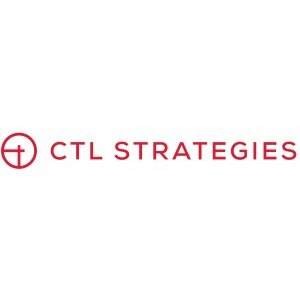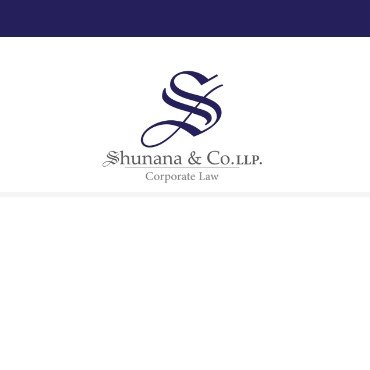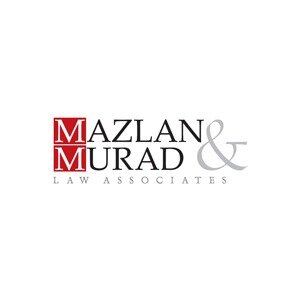Best FDA Law Lawyers in Malé
Share your needs with us, get contacted by law firms.
Free. Takes 2 min.
List of the best lawyers in Malé, Maldives
About FDA Law in Malé, Maldives
FDA Law in Malé, Maldives, refers to laws and regulations governing the safety, quality, importation, sale, and marketing of food, drugs, and other regulated products. Inspired by international best practices and adapted to local needs, these laws aim to protect public health by ensuring that food and medicinal products circulating in the local market meet approved standards. Most aspects are overseen by the Maldives Food and Drug Authority, with input from the Ministry of Health and other regulatory bodies. Compliance requirements for manufacturers, importers, distributors, and retailers are strictly enforced in Malé and nationwide.
Why You May Need a Lawyer
Navigating the realm of FDA Law in Malé can be complex for individuals and businesses alike. Common situations requiring legal advice include facing regulatory enforcement actions, defending against allegations of non-compliance, obtaining licenses and approvals for manufacturing or importing, dealing with product recalls, or understanding changes in the law. Businesses launching new food or medical products especially need legal counsel to avoid costly mistakes, ensure product registrations, labeling, and advertising meet Maldivian requirements. Individuals also seek assistance when adverse health effects suggest violations by manufacturers or sellers.
Local Laws Overview
Key laws relating to FDA matters in Malé include the Food Act, the Drugs Act, and a variety of administrative regulations set by the Maldives Food and Drug Authority. The Food Act outlines standards for food safety, labeling, manufacturing, and handling, while the Drugs Act and related rules manage the registration, import, sale, and clinical use of pharmaceutical products. Key aspects include mandatory product registration, facility inspections, licensing for businesses, penalties for violations, and processes for product recall. The local law gives broad powers to the Maldives Food and Drug Authority for enforcement and appeals. Businesses and individuals must also adhere to relevant health, customs, and consumer protection laws as they relate to FDA issues.
Frequently Asked Questions
What types of products are regulated by FDA laws in Malé, Maldives?
FDA laws in the Maldives usually cover food, medicines, health supplements, cosmetics, and some medical devices. Any product intended for human consumption or use for health purposes is subject to regulation.
Who oversees the enforcement of FDA laws in the country?
The Maldives Food and Drug Authority is the principal regulatory body tasked with oversight, alongside the Ministry of Health and related agencies.
Do I need to register imported food and pharmaceuticals before selling them?
Yes, registration with the Maldives Food and Drug Authority is required before importing or selling food and pharmaceutical products in Malé or elsewhere in the Maldives.
What are the labeling requirements for food and drugs?
Products must be labeled in accordance with regulations, including ingredient lists, nutritional information, expiration dates, batch numbers, and manufacturer details. Mislabeling is a violation of local law.
Can products be recalled if found unsafe or non-compliant?
Yes, the Maldives Food and Drug Authority can issue recalls and require withdrawal of unsafe or non-compliant products from the market.
What penalties exist for violating FDA laws?
Penalties may include fines, suspension or revocation of licenses, confiscation or destruction of products, and in serious cases, criminal prosecution.
As a consumer, what can I do if I believe a product caused harm?
You can file a complaint with the Maldives Food and Drug Authority, who will investigate the matter. Legal action for damages may also be possible through civil courts.
How are food establishments regulated in Malé?
Restaurants, food shops, and manufacturers must obtain operating licenses, subject to regular inspection and compliance with food safety standards set out in the Food Act and supporting regulations.
Is it mandatory for pharmacies and clinics to have specific licenses?
Yes, all pharmacies and clinics need licenses from the relevant authorities and must comply with operational standards and periodic inspections.
Where can I get updates on changes to FDA laws and guidelines?
The Maldives Food and Drug Authority regularly publishes updates. Legal professionals and trade associations can also provide timely notifications of regulatory changes.
Additional Resources
If you need more information or assistance related to FDA Law in Malé, Maldives, consider reaching out to the following resources:
- Maldives Food and Drug Authority - The central agency for regulation, licensing, and enforcement
- Ministry of Health - Oversees health policy and allied regulations
- Maldives Customs Service - Responsible for inspecting and clearing imported food and drugs
- Consumer Protection Agency - Handles consumer complaints on product safety and standards
- Local Bar Association - Can assist in finding qualified legal professionals experienced in FDA Law
Next Steps
If you require legal assistance with FDA Law matters in Malé, Maldives, consider the following steps:
- Identify the specific issue you are facing, such as compliance, a regulatory action, or product liability.
- Gather relevant documentation, including product labels, communications with authorities, licenses, and any notices or correspondence received.
- Consult a lawyer experienced in food and drug regulatory matters in the Maldives. They can review your case, advise you on your rights and obligations, and help you interact with authorities.
- Stay proactive in monitoring legal developments and compliance requirements in your sector, as regulations can evolve.
- If you are a business, educate your staff about local laws and standard operating procedures to minimize the risk of violations.
Taking these steps early can help resolve potential FDA Law issues efficiently, avoid penalties, and ensure consumer trust in your products or services.
Lawzana helps you find the best lawyers and law firms in Malé through a curated and pre-screened list of qualified legal professionals. Our platform offers rankings and detailed profiles of attorneys and law firms, allowing you to compare based on practice areas, including FDA Law, experience, and client feedback.
Each profile includes a description of the firm's areas of practice, client reviews, team members and partners, year of establishment, spoken languages, office locations, contact information, social media presence, and any published articles or resources. Most firms on our platform speak English and are experienced in both local and international legal matters.
Get a quote from top-rated law firms in Malé, Maldives — quickly, securely, and without unnecessary hassle.
Disclaimer:
The information provided on this page is for general informational purposes only and does not constitute legal advice. While we strive to ensure the accuracy and relevance of the content, legal information may change over time, and interpretations of the law can vary. You should always consult with a qualified legal professional for advice specific to your situation.
We disclaim all liability for actions taken or not taken based on the content of this page. If you believe any information is incorrect or outdated, please contact us, and we will review and update it where appropriate.

















